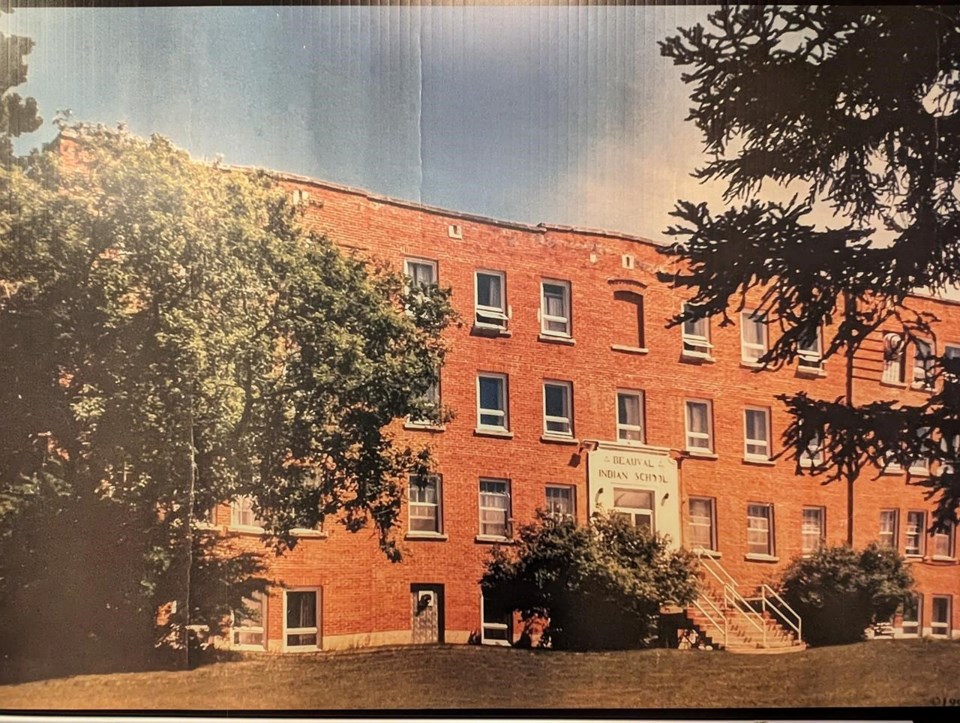BEAUVAL, Sask. — Eighty-three areas of interest have been found using ground-penetrating radar during a search for possible unmarked graves at a former residential school in northern Saskatchewan.
English River First Nation Chief Jenny Wolverine said in a news release that many of the sites located at the Beauval Indian Residential School were labelled as “child-sized” or “subadult.”
Twelve were a size consistent with the burial of infants, and Wolverine said that is in line with several survivor stories about babies being born and dying at the school.
The First Nation began searching the site two years ago. Now that possible unmarked graves have been found, a special council of community members, elders and survivors are providing guidance on the next steps.
Additional sites identified by survivors are to be searched with ground-penetrating radar over the next year.
The residential school near La la Plonge, a glacial lake in northern Saskatchewan, was operated by the Roman Catholic Church from 1906 to 1969 when it came under federal control.
Nineteen boys and one teacher died in 1927 when the school and its convent caught on fire.
The Meadow Lake Tribal Council took full control of the school in 1985, and the residence was closed 10 years later.
The National Centre for Truth and Reconciliation has a record of 52 children’s deaths at the school.
Survivors told the Truth and Reconciliation Commission, which looked into the legacy of residential schools in Canada, about physical and sexual abuse, humiliation and how their language was restricted.
At least two former staff members, a supervisor and a principal, have convictions for sexually abusing children.
The First Nation said National Centre for Truth and Reconciliation has a vast number of records about the school, including handwritten records in French that are being translated.
Analyzing the records is expected to take up to three years and the First Nation said it’s hoped the documents will help identify children linked to the possible graves and the First Nations they belong to.
The First Nation is closely connected to the Métis community of Patuanak. Métis Nation-Saskatchewan Vice-President Michelle LeClair said in a news release that more than 15 northern communities, affecting First Nation and Métis families, had their children sent to the institution.
"It is likely that every family in the north will be touched by this tragedy," LeClair said.
The First Nation is to hold a press conference later this month to provide more information about the search and its results.
“Our Elders and survivors are requesting privacy for the next two weeks to ensure that proper protocol and ceremony can be done to honour the lives of these babies and children,” Wolverine said in a news release.
The Indian Residential Schools Resolution Health Support Program has a hotline to help residential school survivors and their relatives suffering trauma invoked by the recall of past abuse. The number is 1-866-925-4419.
This report by The Canadian Press was first published Aug. 10, 2023.
Kelly Geraldine Malone, The Canadian Press




